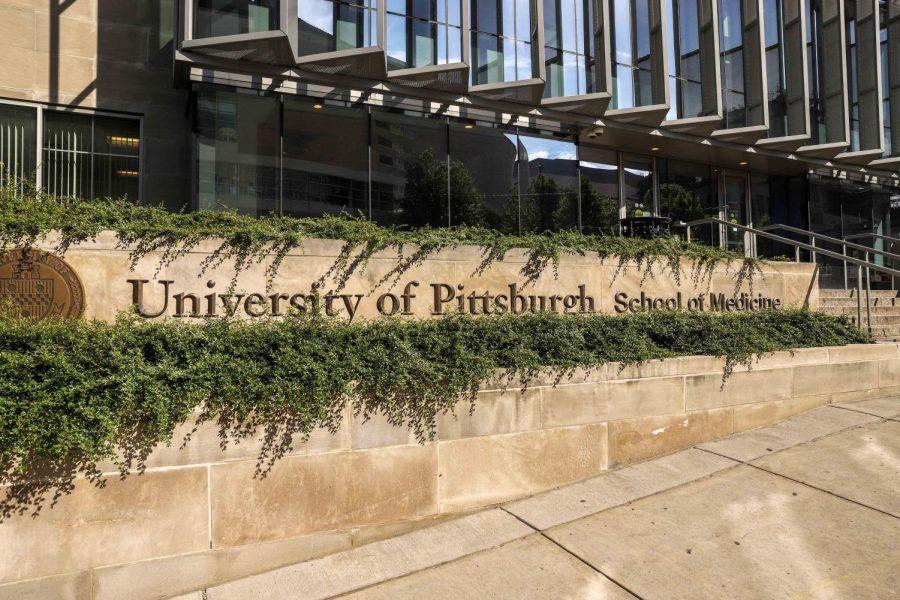World-renowned doctors receiving honorary degrees from Pitt
Pitt’s School of Medicine.
April 20, 2023
For Dr. Victor Dzau, an honorary doctorate from Pitt’s School of Medicine is an accomplishment that he doesn’t take lightly.
“It will go down in my lifetime as one of the things I achieved, and because it’s coming from Pitt, it means a great deal of difference to me,” Dzau said.
Dzau is one of two recipients receiving an honorary doctorate from Pitt on May 21. The School of Medicine will award him a doctorate in health innovation for his work in leading the global response to COVID-19 and developing lifesaving hypertension and heart failure treatments.
The School of Public Health will also award Dr. Chris Elias an honorary doctorate in global health on April 29 for his work to eradicate polio and increase child immunization rates.
“I’m very deeply honored and very excited to join the Pitt family,” Elias said.
After working for two years in a pediatric hospital stationed around refugee camps on the border between Thailand and Cambodia, Elias “realized that most of the diseases that children were in the hospital for were preventable.”
This experience inspired Elias to pursue a career in public health instead of medicine, a field that he has worked in for the past 35 years. He has worked for multiple nonprofit organizations, including the American Refugee Committee, Population Council and the Program for Appropriate Technology in Health. Currently, Elias is president of global development at the Bill & Melinda Gates Foundation.
“We’re very close to the final eradication of polio, which will only be the second disease ever eradicated,” Elias said. “We’re down to just a few cases left in Afghanistan and Pakistan, where security challenges are limiting access for the vaccinators. But we’re in, really, the last mile of polio eradication.”
Pitt has close ties to fighting polio given that Pitt medical researcher Jonas Salk and his team of scientists developed the first polio vaccine in the 1950s.
“Pitt was there at the very beginning of the journey to control and eradicate polio, and I’m currently chairing the board of the entity that’s going to finish the job,” Elias said.
Elias said “there’s no better time to be going into global health,” and expressed the importance of making access to health resources more equitable around the world.
“I think this is the opportunity to apply science, to create equitable access to the fruits of that science and improve the health of people, improve the economic opportunities for people, create more fairness in the world, is going to create a safer and more just world,” Elias said.
“Dr. Elias is a visionary and inspiration to public health professionals, particularly our students interested in global health,” Dr. Maureen Lichtveld, dean of Pitt’s School of Public Health, said.
“We look forward to awarding him an honorary degree in recognition of his leadership in polio eradication, as well as all his innovative global health work through the Bill and Melinda Gates Foundation to overcome hunger, poverty and disease.”
The honorary doctorate is Elias’s second honorary degree. His first came from his alma mater, Creighton University.
For Dzau, Pitt’s School of Medicine will be the 17th institution to honor him with an honorary doctorate.
At 5 years old, Dzau entered Hong Kong with his family as refugees escaping civil war in China. He said the suffering and illness he saw in his childhood inspired him to pursue a career in medicine.
“Throughout my youth, I wanted to go into medicine to serve and to take care of illness in people and reduce suffering,” Dzau said.
Dzau’s passion for medicine led him to academia, where he served as chairman of medicine at Harvard Medical School’s Brigham and Women’s Hospital, chairman of the Department of Medicine at Stanford University and, most recently, distinguished professor of medicine at Duke University. Currently, Dzau serves as president of the National Academy of Medicine where he leads the organization’s efforts to respond to the COVID-19 pandemic.
Dr. Anantha Shekhar, dean of the School of Medicine, said he’s looking forward to giving Dzau his degree.
“It will be my pleasure to award him an honorary degree acknowledging his leadership in the global response to COVID-19, his seminal research in cardiovascular medicine and genetics and his worldwide contributions to addressing health disparities,” Shekhar said.
Over the course of his career in medicine, Dzau says the biggest lesson he’s learned is the importance of helping others.
“When you enter a health profession — doctor, nurse, dentist, pharmacy, you name it — I think we need to remember our job is to be able to serve,” Dzau said. “Serve people. Not only serve them in terms of when they’re ill, but in fact protect their health and enable them to achieve a healthier life.”



